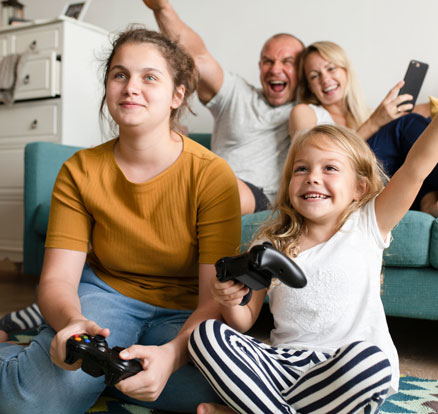
More hate online than in the schoolyard?
The temperature can get quite high on social media sometimes, and young people have different ways of dealing with ugly comments. We've had a conversation with three eighth-graders.
Choose language in the Google-box below. Some translations may be flawed or inaccurate.
Agnes, Zeren, and Mavjut at Verket school in Moss (Norway) use social media diligently to keep in touch with friends and to watch entertaining videos and entries from all over the world. Although they have never been beside the positive opportunities offered by technology, they agree that there are some ugly comments in circulation.
– There is cyberbullying and other things that happen online that would not have happened without social media. People are tougher behind a screen than in front of others face-to-face. A lot of people toughen up and say whatever they think, but actually, it’s just mean, and they shouldn’t say that, says Agnes.
Mavjut believes that being able to be anonymous online also means that many people write things that they would not have done otherwise. You can’t always know who is the sender behind an ugly comment.
– I’ve also seen YouTubers making videos where they read out ugly comments that they’ve received. They kind of retaliate and make fun of those who have made the comments, says Mavjut.
Worse online than in the schoolyard?
When you write things online, you can be even more vicious than in real life,» says Mavjut. If you had stood in front of the person, you wouldn’t have dared to say those.
– Bad things happen in the schoolyard, but maybe it’s more concealed, with whispers and pointing fingers than saying it out straight, says Agnes.
According to the Children and Media survey from the Norwegian Media Authority, 31 percent of 9 – 18-year-olds say they have received nasty comments online while playing games or on social media.
Zeren thinks that those who write ugly things are not doing so well. That they don’t feel so good about themselves and therefore take it out on others.
– People can write ugly about everything. For example, about how you look, how you are, your personality, or how you dress. They’re really complaining about everything, says Agnes.
She also believes that skin color, gender, and disabilities come into play – that you are more vulnerable based on how you look. In the European survey EU Kids Online, 16 percent of Norwegian children between the ages of 12 and 16 reports that they have seen hate messages attacking certain individuals or groups.
– If someone is physically disabled in some way and it is visible, then they often get comments about why they look like this and why they are like that. And if the person has a different skin color, then there are often comments on it as well, says Agnes.
Both Zeren and Agnes believe that girls are more susceptible to nasty comments than boys.
– Perhaps there are more boys who write ugly things than girls. The boys might be a little tougher and say bad things, Zeren thinks.
Why are you doing this?
If Mavjut had received an ugly comment, he would have brought it up with an adult he trusted, like his parent or teacher. But it depends on how serious or ugly the message is.
– It is also possible to report. But I don’t always care. If it had been something big, I might have asked the person what he or she gets out of writing such ugly things, says Mavjut.
Agnes might have tried to just ignore the message. But if there had been a particularly nasty comment, she would have tried to ask the person why the person writes such a thing.
Some people block those who write ugly comments, others report them. Almost three out of ten children do nothing according to the Children and Media survey. Why do so many people become so passive?
– In open comments sections, there are often several people who agree with the person who writes something ugly. And then you don’t dare to tell them, Zeren thinks.
Agnes believes that there is a distinction in which she would have herself involved, particularly if the victim was a friend or someone she knew. Then she would have said or done something.
How to deal with ugly comments?
These eighth-graders have more thoughts about what to do when ugly messages appear on social media.
Mavjut: You can always report them.
Zeren: If you can’t stand ugly comments, you shouldn’t post videos on social media.
Agnes: It’s possible to turn off the comments section if you don’t want others to write something hurtful there.
And if things really get bad, Agnes thinks it might be a good idea to talk to her parents.
– I had shown the comment to my mom or dad. And then they’d done something about it since they are adults. But then you also have to take care of yourself that you don’t write stupid things to others, says Agnes.
Read more:
What is hate speech?
Should children be encouraged to stand up against hate speech?
Hate speech: More difficult for immigrant children
Reporting of bullying and hate speech in games
(First published on 23 November 2021. Translated by Ratan Samadder)










